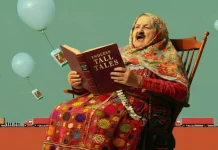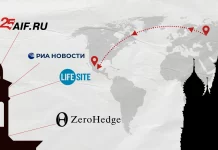
Pro-Kremlin media plays with the idea of civil war in Latvia
By Mārtiņš Kaprāns, for CEPA
On 5 July, the pro-Kremlin news portal Vesti.lv published an article by Vladimir Linderman, an outspoken pro-Kremlin Latvian activist, about local Russian-speakers’ insecurities; the article alluded to a possible civil war in the country. Linderman, whom Vesti.lv introduces as a political scientist—although he is not—stated that the Latvian government plans to make Latvian the only language of instruction in public schools. He also argues that Russian-speakers have exhausted all legitimate means of fighting for their rights: “Either an insurrection or influential external force should interfere. It is clear that only Russia can be such a force.” Yet neither in the original article, nor in the one reposted by Vesti.lv does Liderman explicitly refer to civil war; Vesti.lv adds this concept.
Although Vesti.lv presented Linderman’s article as original, the pro-Kremlin news agency Regnum already had published it on 11 February 2016—the day the current Latvian government came to power. (In previous briefs, CEPA analyzed how pro-Kremlin agents tried to encourage Latvia’s Russian-speaking community to defend the status of the Russian language during the appointment of this new government.) The language of instruction has been a sensitive issue since 2004, when Russian-speakers loudly protested against education reforms to strengthen the role of Latvian in state-supported minority schools where Latvian is used along with other minority languages such as Russian, Ukrainian and Polish.
On 28 July, Vesti.lv republished an article by another Latvian pro-Kremlin activist, Alexander Gaponenko, whose name has appeared often in CEPA briefs (see here and here). That article, “The Latvian advocate of human rights: civil war is inevitable,” was excerpted from a longer piece that appeared a few months ago. In his original article, Gaponenko reflected on the conflict between Anglo-Saxons and Russians in Eastern Europe, a dichotomy that echoes the Kremlin narrative on the civilizational conflict between Russia and the West. The excerpt claimed that the Baltics’ ruling elites have pursued “a policy of repression, discrimination and forced assimilation of Russians.” This unsubstantiated narrative has been a part of the Kremlin’s hostile public diplomacy towards the Baltic states since the 1990s. In July, pro-Kremlin media also reported on Gaponenko’s petition to the International Criminal Court claiming “persecution of Russian-speakers in the Baltic republics” and “theft of their citizenship.” Along with this application, Gaponenko launched a campaign to collect evidence of harassment and discrimination against Russians in Latvia. This alleged evidence reportedly will support the already submitted ICC application.
Linderman and Gaponenko are known pro-Kremlin activists in Latvia. For years, both have publicly advocated Moscow’s point of view, but the alleged discrimination of Russians and Russian-speakers has remained their primary focus. However, research suggests they are wrong. surveys conducted by leading Latvian pollster SKDS show that only 48 percent of Russian-speakers think the current government threatens the existence of Russian language and culture in Latvia, whereas 39 percent do not think this is a real threat. This shows that Lativa’s Russophone community is highly polarized in its attitude towards the discrimination narrative advocated by pro-Kremlin activists in Latvia.
Vesti.lv’s attempts to reframe ethnic relations in Latvia as the cause of a potential civil war may be linked, as we have previously pointed out, to Kremlin attempts to trigger a “Russian riot.” The rhetorical escalation may also be an effort to make ethno-politics an issue in next year’s Latvian parliamentary elections.
By Mārtiņš Kaprāns, for CEPA
Mārtiņš Kaprāns is a researcher at the Institute of Philosophy and Sociology, University of Latvia.




